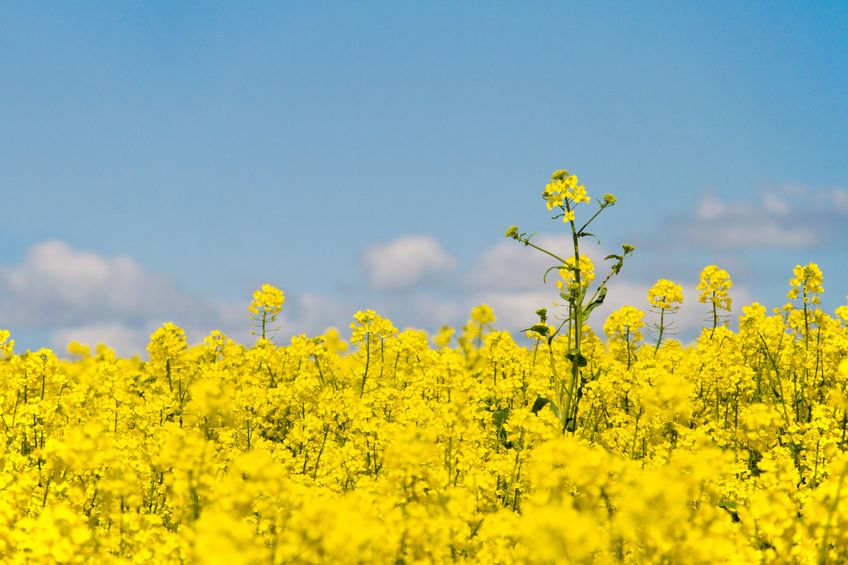
A sharp drop in the UK's oilseed rape yield has led the NFU to call for an agricultural policy that gives farmers the 'confidence' to grow the crop.
The publication of the latest Harvest Survey results shows a significant drop in oilseed rape yield, despite high yields across the arable sector for cereal crops.
However, major threats from cabbage stem flea beetle have seen oilseed rape yields drop to 3.4 tonnes per hectare this year.
This is below the five-year average of 3.6 tonnes per hectare.
With no access to effective plant protection products leading to increased pest pressures, farmers are reducing the area of oilseed rape they are growing.
The NFU has called for the government to ensure that any new domestic agricultural policy looks for solutions to make growing oilseed rape viable for the future.
NFU combinable crops board chairman, Tom Bradshaw said: “The glaring result from this survey is the significant drops in oilseed rape yield, which can almost certainly be attributed to the loss of effective plant protection products to control pest pressure.
“I have heard from countless farmers that they are questioning whether it is worth growing the crop as a result.
“It just demonstrates how crucial it is to have an agricultural policy that gives farmers confidence to grow these crops, not the opposite.”
Oilseed rape is seen as a vital crop for the arable sector, it is crucial to a broad rotation and has demand across a wide range of products including food, cosmetics, plastics, energy and animal feed.
If farmers stop growing this crop, the NFU fears it will simply become more reliant on imports of oilseed rape and other oil crops, which could be produced with a huge environmental impact.
“We will be severely undermining our farmers and the British arable sector, as a result,” Mr Bradshaw said.
“That’s why we need to see a future plant health strategy that allows farmers to harness innovation and provides growers with solutions to run sustainable businesses, while ensuring the needs of the public and the environment are met.
“We firmly believe that enhancing the environment goes hand-in-hand with food production, and it is crucial that farmers have access to all the tools in the toolbox.
He added: “We need to see the government commit to a trade policy that does not serve to undermine our own growers and help farmers better manage the risk involved with growing crops; from pest pressure to increasingly volatile weather.”
